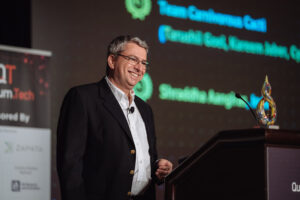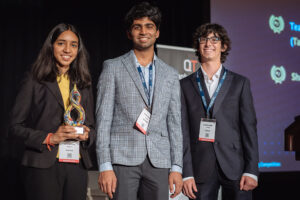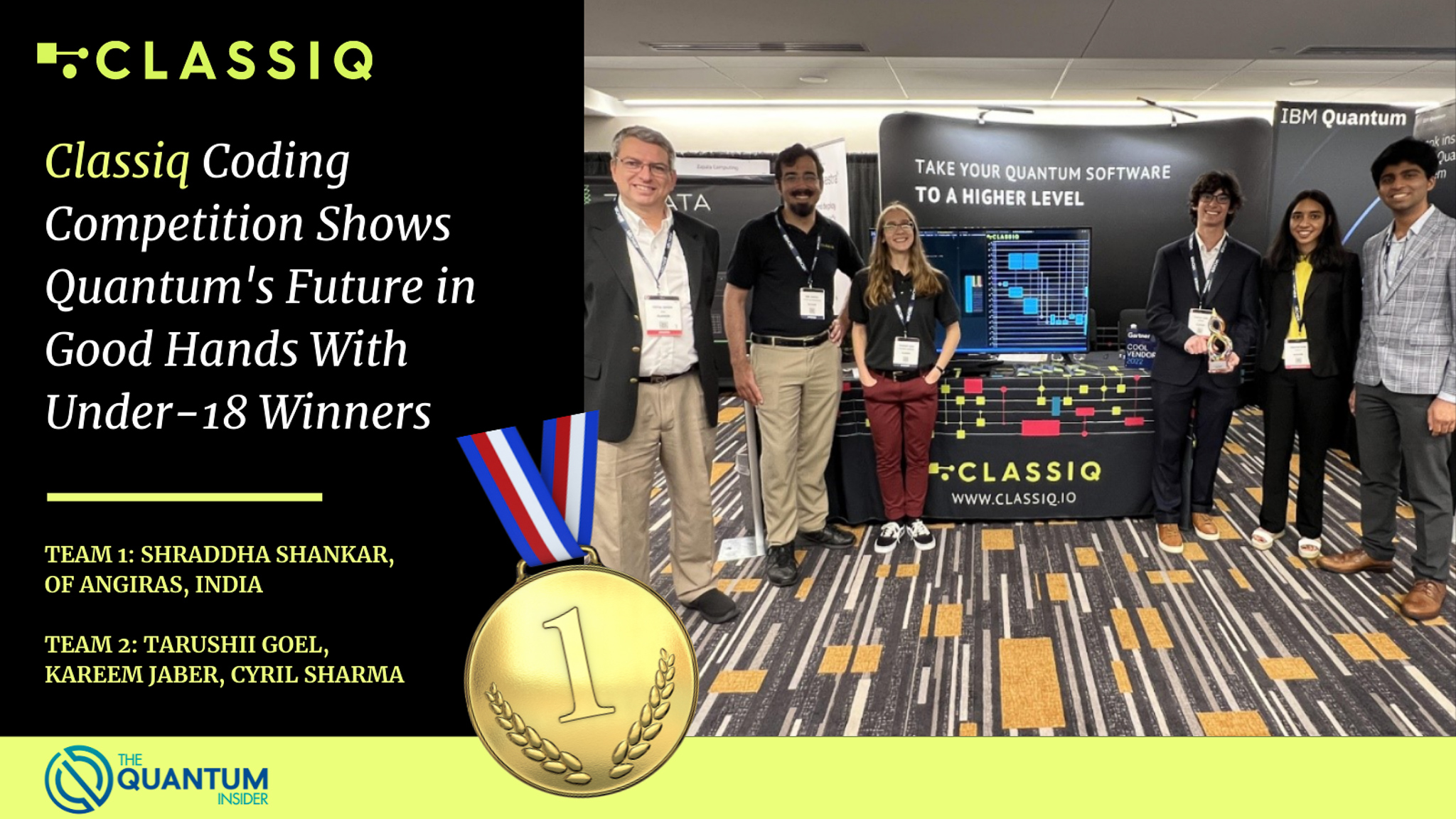Shraddha Aangiras, of India and team Carnivorous Cacti — Tarushii Goel, Kareem Jaber and Cyril Sharma — were the coding challenge’s under-18 winners.
For Aangiras, a video led to a lifetime career goal. Aangiras is a rising junior in high school at RV PU College.
“In the 8th grade, I became aware of quantum computing when my father showed me a video on it, which I was enthralled by,” said Aangiras “Since then, I’ve been learning quantum computing for about two years and a half. I have no formal background in it yet, but it’s what I hope to pursue. I have the IBM Quantum Developer Certification (IBM Certified Associate Developer – Quantum Computation using Qiskit). I primarily learned to create quantum circuits through the Qiskit textbook, the Coding School, and QCSYS. I used Khan Academy and MIT OCW to learn engineering math to aid me. I’ve been dedicating most of my time to quantum computing, as it’s a field I’d love to go into. It encapsulates my passion for math, physics, and computer science. My parents sparked my love for the subjects, and quantum computing made it flourish.”
Aangiras said the coding challenge lived up to its name.

“I was surprised how many times I had to rewrite my solutions. On paper, I found the solutions quite swiftly, but while I ran them, I found that they had countless mindless mistakes,” said Aangiras. “A pleasant surprise was how incredibly responsive the staff was. All the questions from my end – as silly or repetitive as they were – were answered quickly, politely, and patiently. I’m immensely grateful for their help!”

Programming Powered by Tea
The task took roughly 3 days to work out a correct solution for the multi-control X gate and the Kakuro problem took about 7 days. Mom’s tea didn’t hurt either.
“The main thing that powered me through debugging them was the hot cups of tea by my mother,” Aangiras said.
“With over a quarter of the world’s population being under 18, attracting additional people into the quantum field largely should focus on the youth.”
Aangiras hopes that more young people pursue quantum.
“With over a quarter of the world’s population being under 18, attracting additional people into the quantum field largely should focus on the youth,” said Aangiras “A significant part of them is largely unaware of the field. More awareness of the intriguing field is absolutely vital.”
More learning opportunities – and events like the Classiq Coding Challenge – would help attract that talent, according to Aangiras.
“Low-cost/ free in-depth workshops and internships would increase interest in the field, especially in students. Workshops are generally either too expensive, teach very superficially, or are often too advanced for beginners,” said Aangiras. “Additional resources for learning the prerequisites would immensely aid the learning curve as well. Incredible competitions like this that recognize youth participation bring about a heightened interest in the field.”

Carnivorous Cacti
The Carnivorous Cacti team felt pretty prepared for the contest. The team members took a quantum mechanics class in high school that gave them the background into what quantum states are and how to evolve them over time. They also had a week or two of lessons on quantum computing where they implemented quantum teleportation and learned about Grover’s algorithm.
The team comes from three different universities — Princeton, MIT and Purdue — and have a mix of academic interests, including pure math, mechanical engineering, physics and computer science.
According to team members, they spent about four hours on the Kakuro challenge, six hours on Toffoli challenge, 10 hours on Hamiltonian challenge and 6 to 8 hours on the Log-Normal Distribution challenge.
The Carnivorous Cacti team also did very well in the Toffoli Decomposition category, earning bronze for their entry.
“We believe that sharing this potential with others and getting them excited about the impact of quantum technology is an important way of attracting more people to the field of quantum.”
The team writes that recruiting more people into the quantum field should be a priority because of the importance of quantum’s potential benefits.

“Quantum computing has the potential to significantly impact so many fields, such as computational physics/chemistry/biology, computer science, mathematics, and finance,” they write. “We believe that sharing this potential with others and getting them excited about the impact of quantum technology is an important way of attracting more people to the field of quantum. As high schoolers, we also see an importance of extending access to educational quantum mechanics and quantum computing material — i.e. Qiskit’s textbook and summer schools, opportunities to take classes on quantum as a high schooler or through dual enrollment — to be able to help grow the next generation of quantum researchers and innovators. Additionally, we think quantum mechanics gets a reputation of being complex and hard to understand, and while some of it is, we think quantum computing is more approachable than many people think. Dismantling this reputation would help attract more people to quantum.”
For more market insights, check out our latest quantum computing news here.













